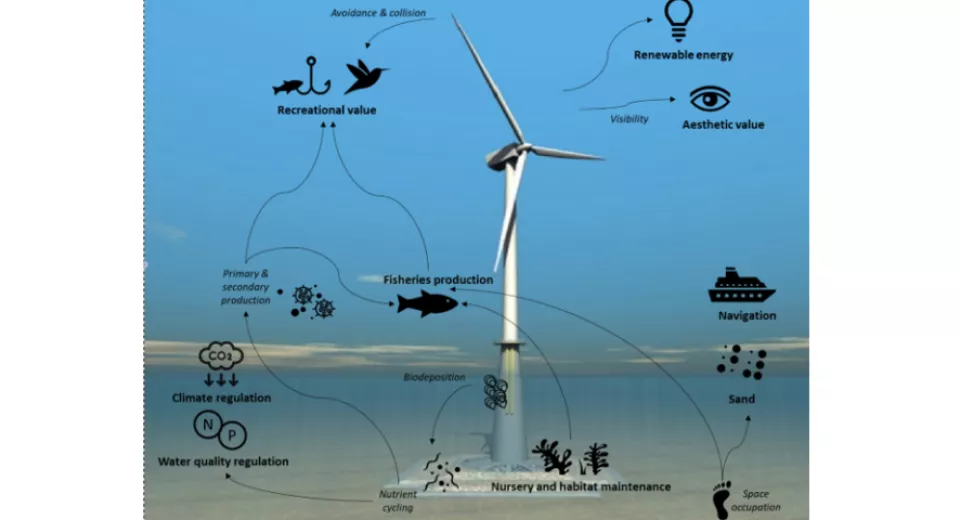Ecosystem services in the North Sea uncovered
In the SUMES project, Ghent University, the University of Antwerp and the Flanders Marine Institute (VLIZ) develop a model to calculate the sustainability of human activities at sea. One of the techniques under preparation is aimed at quantifying the impact on marine ecosystem services. Ecosystem services are all benefits obtained by people from nature such as fish, clean water, carbon storage, renewable energy, etc.
A showcase with offshore wind
The first major step in the development of such a model is obtaining a full understanding of how the marine ecosystem functions, how ecosystem services are provided and what impact human activities may have on them. In SUMES, all knowledge about ecosystem functioning and ecosystem services in continental seas such as the Belgian North Sea has been compiled and arranged into a cause-effect diagram. The principal impact chains have thus been identified.
For example, the impact chain of an offshore wind farm has been mapped. This has shown that effects are expected on 9 ecosystem services: aesthetic value, renewable energy, recreation, transport, fisheries output, water quality regulation, climate regulation, availability of sand and habitat conservation.

Impact calculation requires a tailor-made approach
The diagram has subsequently been used as a guideline to calculate the impacts of the wind farm on the 9 ecosystem services. The quantification method differs for each ecosystem service, however. Existing models are sometimes adjusted – e.g. for water quality regulation – or new methods are developed – e.g. to quantify the effect on the recreational value (e.g. bird spotting). The various methods are then compiled into an integrated model for calculating the effect on marine ecosystem services for different scenarios (project designs, spatial planning, etc.).
By taking ecosystem services into consideration, we can go one step further than merely avoiding negative impacts, but also develop activities in such a way that they have positive effects on the environment and humans. The showcase has demonstrated that certain parameters have a major influence on the ecosystem services (for instance, structural complexity of hard infrastructure), and it is therefore crucial that attention is paid to these parameters when developing new activities.
Want to learn more about SUMES?
Having read this article, would you like to find out more about the identification and calculation of marine ecosystem services, and/or obtain more detailed information about the SUMES project?
Then contact the project coordinator, Sue Ellen Taelman, from Ghent University (E: SueEllen.Taelman@UGent.be, T: +32 9 264 58 71)


